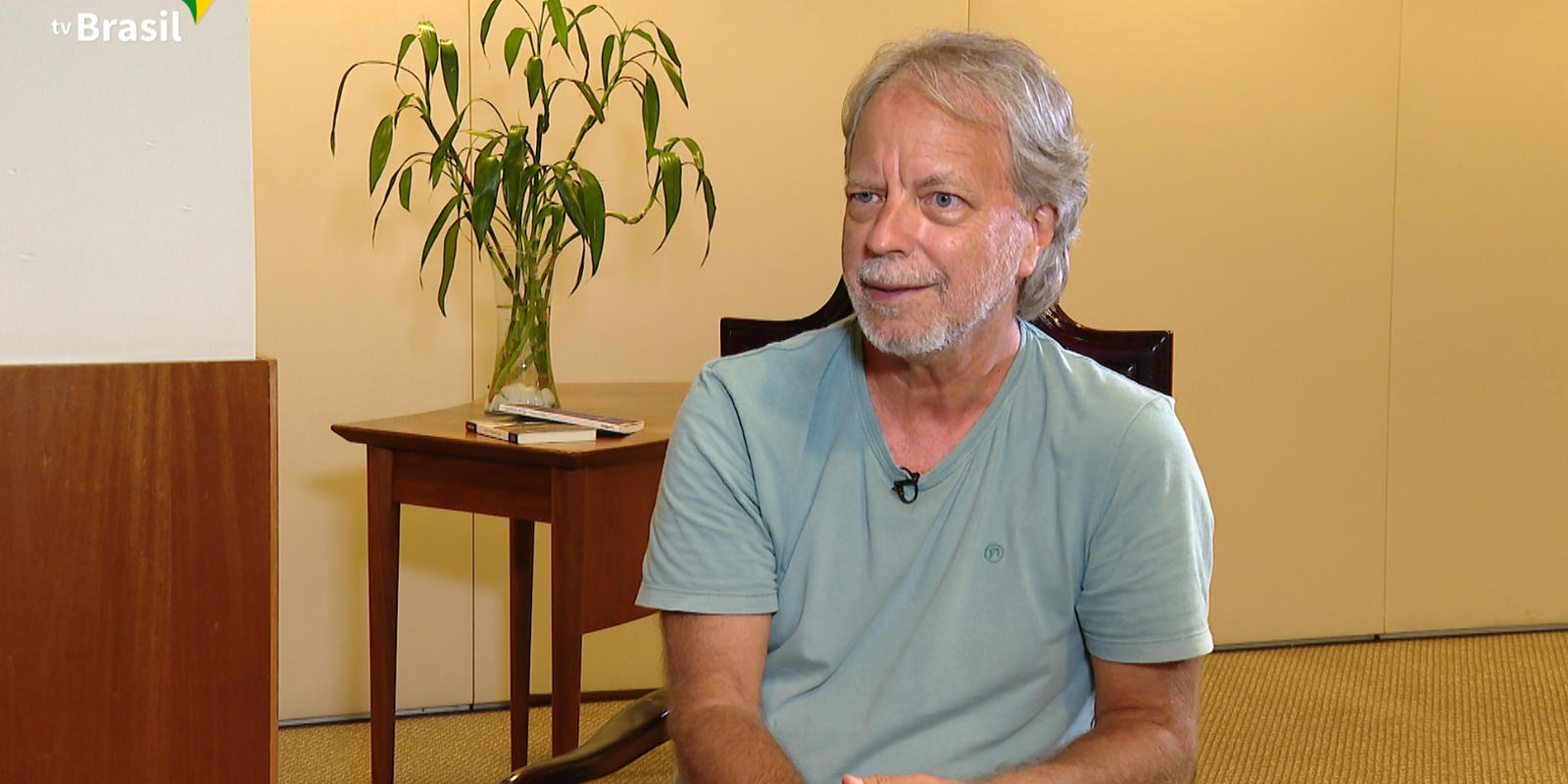One of the main authors of the African continent, Antônio Emílio Leite Couto, Mia Couto, will launch in Brazil, in the second half of this year, The Little Diseases of Eternitya book of short stories related to the covid-19 pandemic and the author’s childhood in the city of Beira, the fourth largest in Mozambique.
With more than 30 books published and edited in more than 30 countries, Mia participated, this Wednesday afternoon (12), in the April edition of the Reading Club at the Centro Cultural Banco do Brasil (CCBB). The debate on literature continues until December, with new guests, always on the second Wednesday of the month. Admission is free and can be booked by site bb.com.br/cultura.
In an interview with TV Brazilthe author, who has already received dozens of awards, including the Camões, the greatest in literature in Portuguese, and the Neustadt, considered the North American Nobel Prize in Literature, praised Brazilian literary production and spoke about the importance of Jorge Amado for the countries of Portuguese-speaking Africa.
Mia experienced the Civil War in Mozambique, an armed conflict that began in 1977, after the African country gained independence from Portugal. For almost 16 years, the war left about 1 million dead in combat and due to hunger. According to the UN Refugee Agency (UNHCR), more than 8 million people fled the country during the period.
Read the main excerpts from the interview below:
TV Brazil: Tell us a little about your new book The Little Diseases of Eternity:
Mia Couto: It is a book that uses stories that have already been published in Portugal with the title The Invisible Elephant Hunter. What I did was retake part of these stories and then I added another 12, 14 stories in this format. The covid-19 pandemic is present in five, six stories. Not the disease itself, but the way this pandemic was perceived in Mozambique, and how Mozambicans looked at it and did not allow themselves to be intimidated. These different appreciations of what the invisible world is like for modern medicine and for rural Mozambicans, where invisibility is common. But the book also has to do with the story of my childhood, moments with my mother, where I built a kind of eternity for that moment to be preserved in time.
TV Brazil: What inspires you to write?
Mia Couto: It’s a way of finding others within myself. When I write about a woman, this writing is only true if that woman exists within me.
TV Brazil: His work covers several genres, such as short stories, chronicles and novels. Do you have any preferences?
Mia Couto: My home is poetry. Then I go out, I visit other territories. But where I live, where I feel at ease, is in poetry.
TV Brazil: Why is Mozambique a sleepwalking land?
Mia Couto: Because it’s a very long historical process that we’ve just begun, which is to create a nation out of historically ancient nations. And make it possible for these nations to travel between different languages, between cultures, different religiosities that exist in Mozambique. The country has 30 living languages other than Portuguese. And which are the main languages of communication. These are the languages spoken in everyday life. And how to sew all this? There is not exactly a kind of somnambulism, but a kind of permanent journey between different entities.
TV Brazil: What were the impacts of the Mozambique Civil War?
Mia Couto: They were huge. First, the country became a ruin. This war took place in the country that was already one of the ten poorest in the world. Everything that was a building resource – roads, infirmaries, hospitals, schools – was completely destroyed. And I’m not just talking about things, but about people. The attacks were directed, in the first place, against nurses, against teachers, against everything that brought a new idea of a new time, another way of managing, of administering that country. It was almost a religious war. Everything that symbolized modernity was seen as a threat.
TV Brazil: What was it like to start over after 16 years of war?
Mia Couto: When I’m talking about 16 years of war, I’m talking about 1 million deaths. Half of Mozambicans had to seek refuge in other countries. That’s why now, when you talk about the war in Ukraine, it’s as if there were no other wars. When they started to see the refugees crossing the Mediterranean, it seems that it was discovered that there were war refugees, and Mozambique had been there for many years with this tragedy. Those who took in these refugees were poor countries: Malawi, Zambia, Zimbabwe. Those who had little shared with the Mozambicans. It is very difficult to talk about something that obliges us to forget a certain amount. The simple memory of what happened is very traumatic. I left home every day without knowing what I would bring to feed my children. It wasn’t a day, it wasn’t months, it was years.
TV Brazil: How do you evaluate Brazilian cultural production?
Mia Couto: I think that Brazil has every reason to be proud and vain of its cultural production. For us, Portuguese-speaking Africans, I’m just talking about literature now, we owe a huge debt to the references that have come down to us. It is necessary to speak, first of all, of Jorge Amado. He was an absolutely essential reference for us in all five Portuguese-speaking African countries, that name helped us to discover ourselves. From a literary point of view, I got more from Drummond. I took from João Cabral de Melo Neto what prose was, the poetic prose of João Guimarães Rosa and also because of the influence of my father, who was a poet, he had an enormous proximity to Brazilian authors, but he was more connected to Manuel Flag.
TV Brazil: How can literature contribute to peace?
Mia Couto: Those who read it realize that within them are all those characters, including this enemy that can appear in a war story. And, if we build this story in a human way, I think that literature has this role of humanizing the other, even if the other is an opponent, an enemy. War begins before the first shot is fired, war begins in this process of humanizing the other, and literature is a strong resistance against this process of dehumanizing the other.
watch on TV Brazil:















